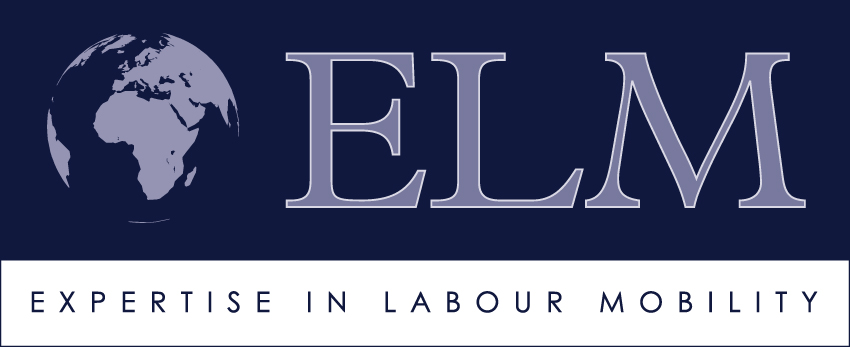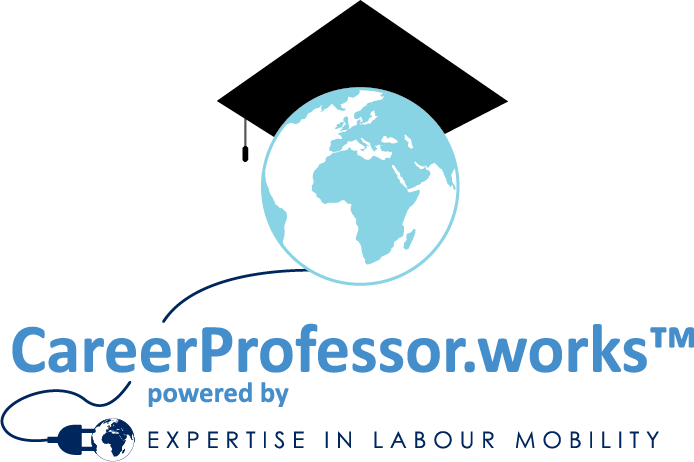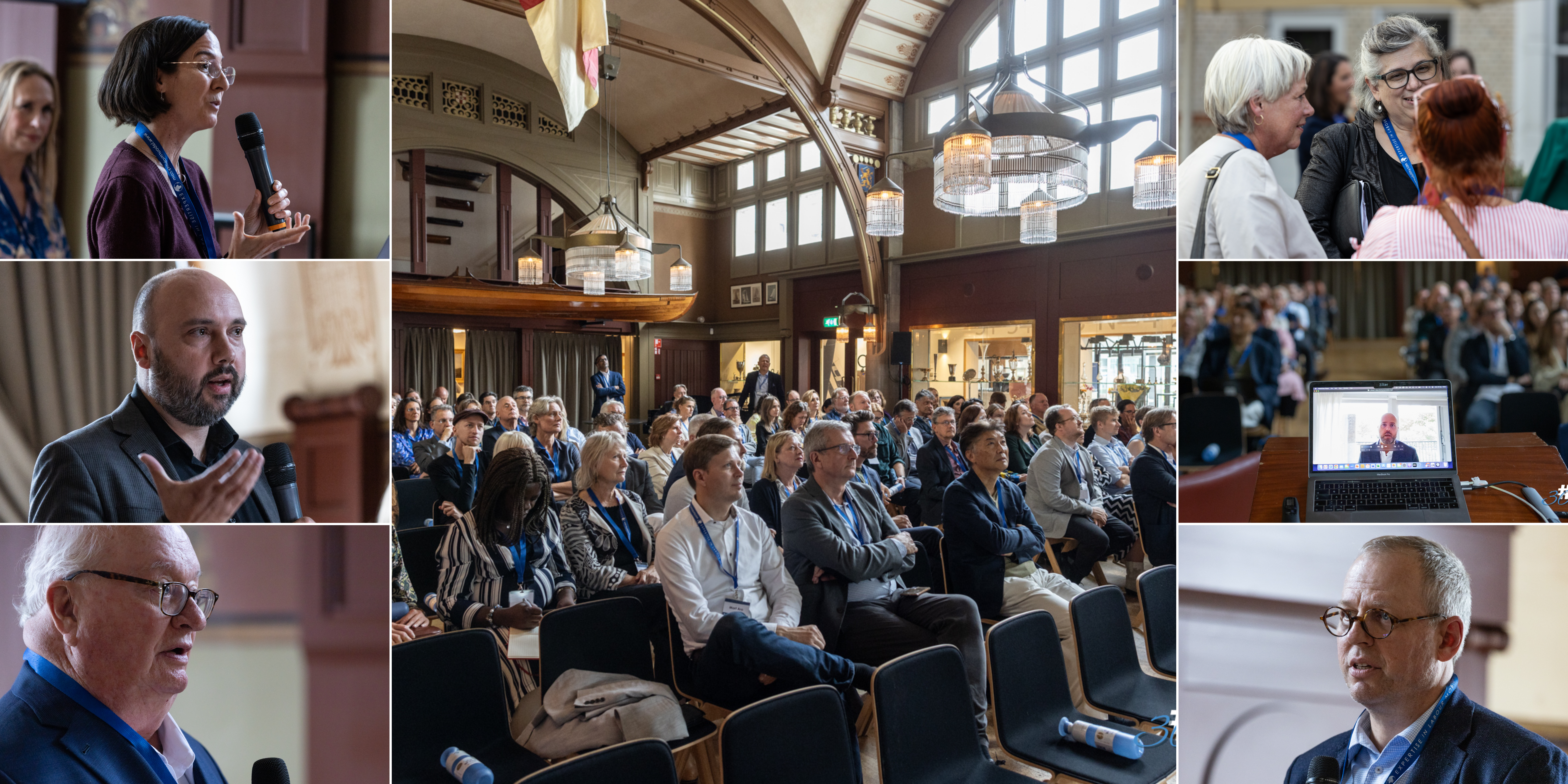
“THE FUTURE IS NOW” | A DEEP DIVE IN THE RELATION BETWEEN EMPLOYABILITY & MOBILITY.
LOOKING BACK: 30 YEARS OF EXPERTISE IN LABOUR MOBILITY
What’s the future of labour mobility and its link to Higher Education and the world of work? On the 25th of September 2023, ELM celebrated 30 years of Expertise in Labour Mobility! Internationalisation of Higher Education has played an evolving role in the past 30 years, hence we invited some international experts to share their views with us:
In today’s globalised world, having an understanding of different cultures is crucial for effective communication and collaboration. Whether it’s studying abroad, working in multicultural teams, or engaging with diverse communities, it is crucial for people to acquire cross-cultural learning and understanding skills. This is a topic which Prof Dr John Hudzik, Professor and Vice President emeritus at Michigan State University and the first to speak at #ELM30, highlighted.
“Cross-cultural learning and understanding is a critical 21st century skill for both life and work. The key learning method is to mainstream access to cross-cultural learning by changing the pedagogy from a few classes to incorporating multiple active learning experiences involving different cultures and places. Very little is a more powerful catalyst for change than interacting with others, especially with those who are different.
Internationalisation has not gone away and it’s not going away; rather, it is morphing in response to global expansion of the sources of cutting-edge knowledge and talent, and in response to increased global competition and opportunities for collaboration. Having multiple reinforcing learning experiences is critical and can include studying abroad, internships and work in multicultural and multinational teams, or engaging diverse and immigrant communities at home.
Multiple experiences magnify and strengthen opportunities for individuals, employees, employers and societies. Why? Because constant renewal and learning from others in the work setting instead of being rooted in the status quo increases the value of all.”
Prof Dr John Hudzik, Professor and Vice President emeritus at Michigan State University
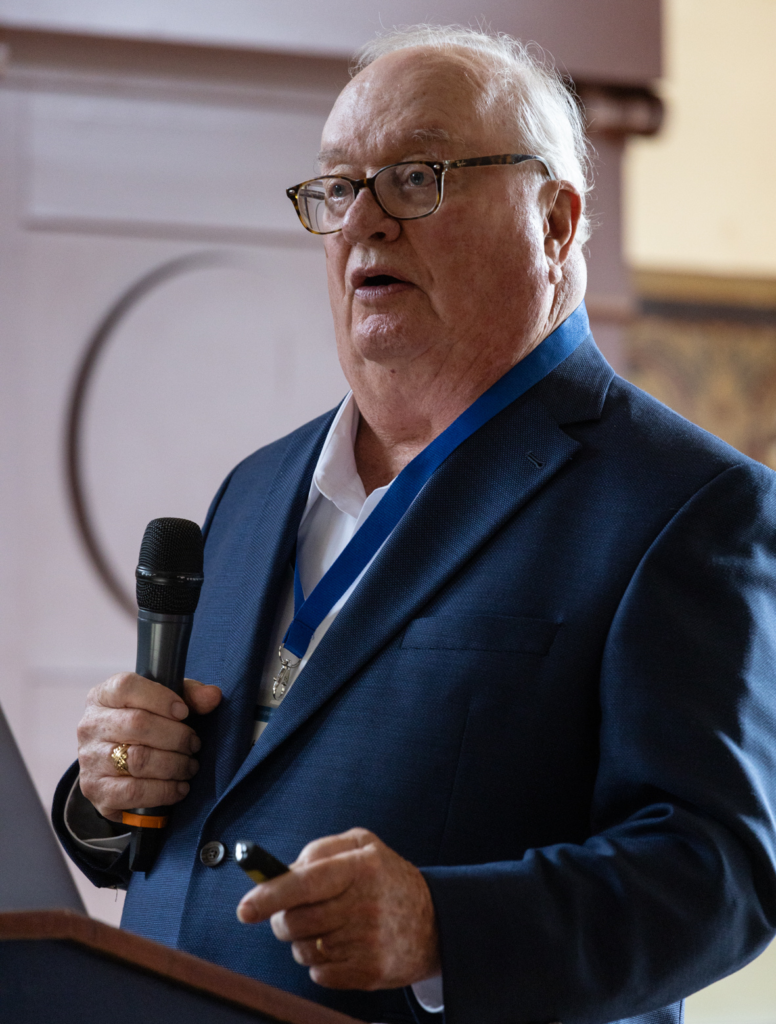
Interested in knowing more about cross-cultural learning and understanding? Read John Hudzik’s article “Cross-cultural learning is now essential for work and life” or click the button below.
In discussions surroundng international mobility, a common tendency is for people to prioritise institutions over individuals. While higher education institutions certainly play a critical role in facilitating global mobility, it is essential not to lose sight of the individuals involved. This is an aspect which Dr Laura Rumbley, Director for Knowledge Development and Research at the EAIE, highlighted during her contribution to the #ELM30 event using her personal experiences of international mobility.
“When we’re thinking about the greater good of internationalisation in higher education, it’s important to remember that the experiences of individuals are really what shape the bigger broader phenomenon of International Mobility – whether it’s for work or study. These individual experiences are always quite complex and they really run the gamut from being the greatest of gifts to some very serious burdens for the mobile individual. It is important to consider the balance between the burdens and gifts associated with their experiences. And I think this is a generalisable idea to all kinds of mobility experiences for all kinds of people.”
Dr Laura Rumbley, Director for Knowledge Development and Research at the EAIE
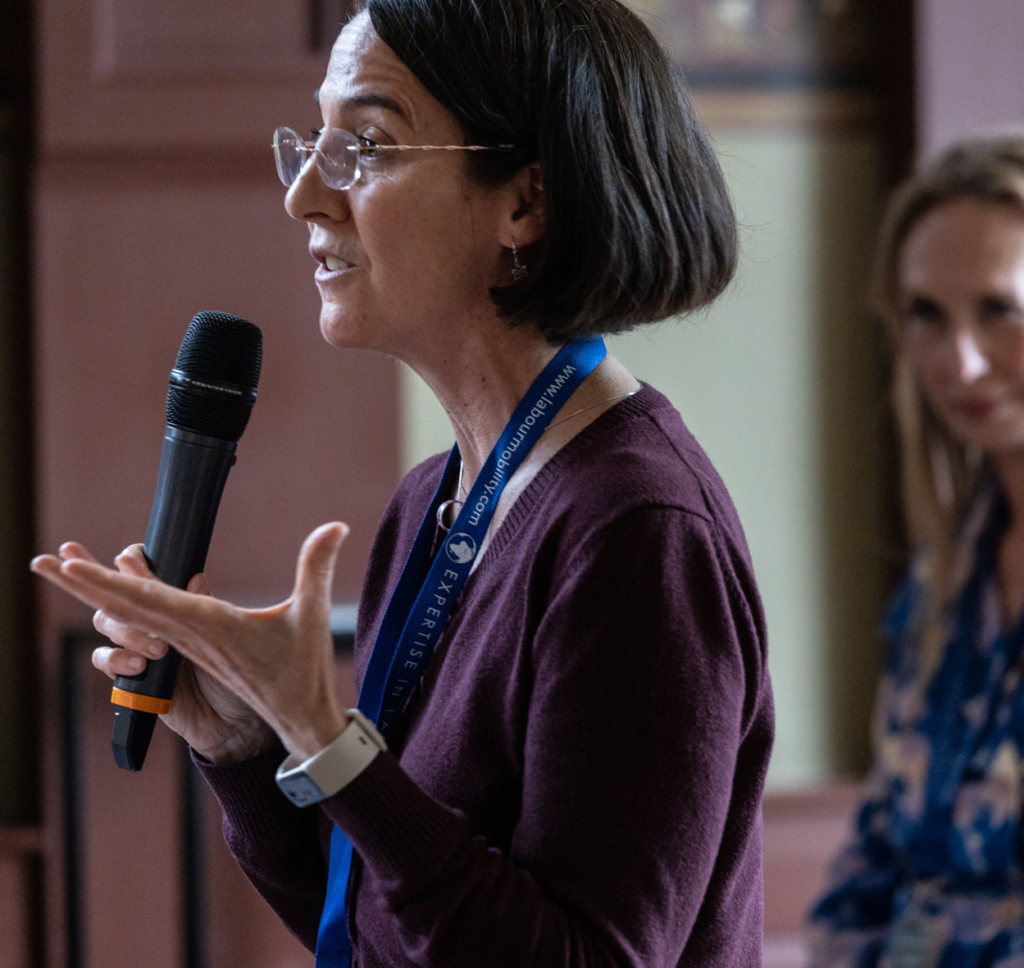
Every person choosing to embark on an international journey has their own unique story, goals, and challenges. And, by placing emphasis on recognising and supporting these individuals, a more inclusive and welcoming environment for international mobility can be created, ultimately benefiting both individuals, higher education institutions and our global society.
Dr Arnim Heinemann, President of SGroup and Director of the International Office at University of Bayreuth, brought his expertise to #ELM30, highlighting HEI’s need to move global talents beyond academia:
“We have to realise that many ‘hidden champions’ which are aiming to operate on the global market are located in HEI in regional environments. To bridge this gap, HEIs must pioneer strategies that connect regional talent with international prospects. Offering targeted internships, entrepreneurship support, and expansive networks, is one way HEIs could steer students in the right direction. Embracing a global mindset, HEIs need to evolve career services to cater to internationally mixed work environments, recognizing the value employers place on practical international experience.
Structured international mobility formats, supported by mid to long-term funding, could drive groundbreaking innovation and societal progress. By collaborating with professional partners, HEIs can enrich learning experiences, equipping students with vital interdisciplinary skills.”
Dr Arnim Heinemann, Director International office at Bayreuth University and President of SGroup
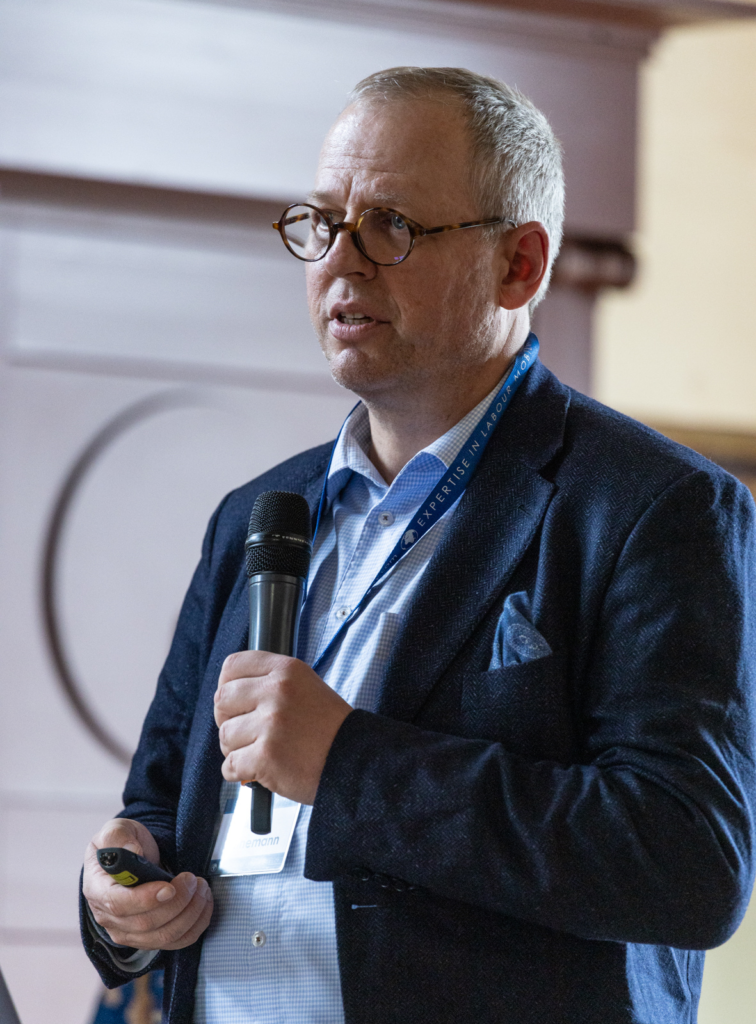
In today’s era of global labour mobility, global employers seek certain qualities in candidates that transcend geographical boundaries. During the ELM 30 event, we got the opportunity to hear about the employer’s perspective. Stuart Jehan, the Vice President of JP Morgan talked about “What are Employers looking for?” and highlighted the “the importance of soft skills, enthusiasm, motivation and the fact that in many ways those attributes are more important than purely looking at the academic skill set.”
“You can tell a lot about a person as to how they conduct themselves in an interview. Some are better communicators than others. But it is also a sense of how motivated the candidate is, and how they will conduct themselves as an employee. So you have to constantly learn and constantly evolve. This is something I want to see in every candidate, that openness to change, openness to learn, that motivation. Just someone wanting to do the very best they can, to me is much more important than purely having the knowledge or experience for the job. A career is an evolution, where you start and where you end up can be two completely polar opposites but it’s all about the journey, there’s very few people that start off doing something and they follow that same path for life.
The biggest misconception is not at least going for the role (if you do not meet every requirement on the description). The reason I say this is because if a potential employer sees a spark of excellence or a specific skill in a candidate which may be above and beyond what the job description entails, it may interest the interviewer enough to make you the number one candidate at the end of the day.
The final takeaway for everyone is that personal integrity, good communication, being a team-player, and clear awareness of cultural diversity are essential skills in my opinion. It’s just a sake of getting out there and presenting yourself as a good person who is easy to manage. Interviewers tend to avoid candidates which they believe could cause conflict or be too problematic, even if convinced that the candidate can do the job, so I would say that’s the biggest thing to be aware of.”
Stuart Jehan, Vice President JP Morgan Chase & Co.
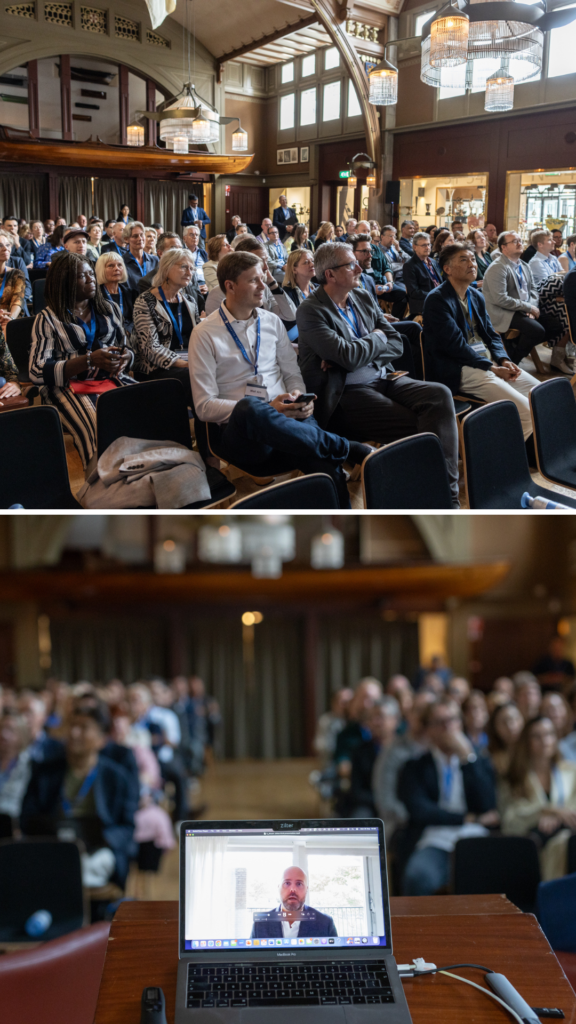
Watch Stuart Jehan’s full virtual presentation here or click the button below.
As the vital role of intercultural skills in workplace success takes centre stage in discussions surrounding international mobility, higher education institutions face a pressing need to re-evaluate their approach concerning the preparation of international students. Dr Darla Deardorff, Executive Director of the Association of International Education Administrators (AIEA) and the final speaker at the ELM30 event, believes intercultural skills are crucial for navigating diverse interactions, and cannot be reduced to one-off training. HEIs must pivot towards a more inclusive and deliberate focus on these skills:
“Fostering intercultural competence isn’t just advantageous; it’s fundamental for navigating our interconnected planet. Embracing diversity and understanding our shared humanity should be at the heart of our efforts. International labour mobility and higher education hold immense potential through bridging theoretical knowledge with real-world issues. Partnering closely with students as active problem solvers offers a remarkable opportunity for mutual learning.
Additionally, intercultural skills are no longer optional but essential for workplace success. Employers highly value these skills, especially in communication, yet students often need further development in this area. Educators play a crucial role in teaching and developing these skills and should be collaborating with students to enhance their proficiency in a globally connected world.”
Dr Darla Deardorff, Executive Director of the Association of International Education Administrators (AIEA)
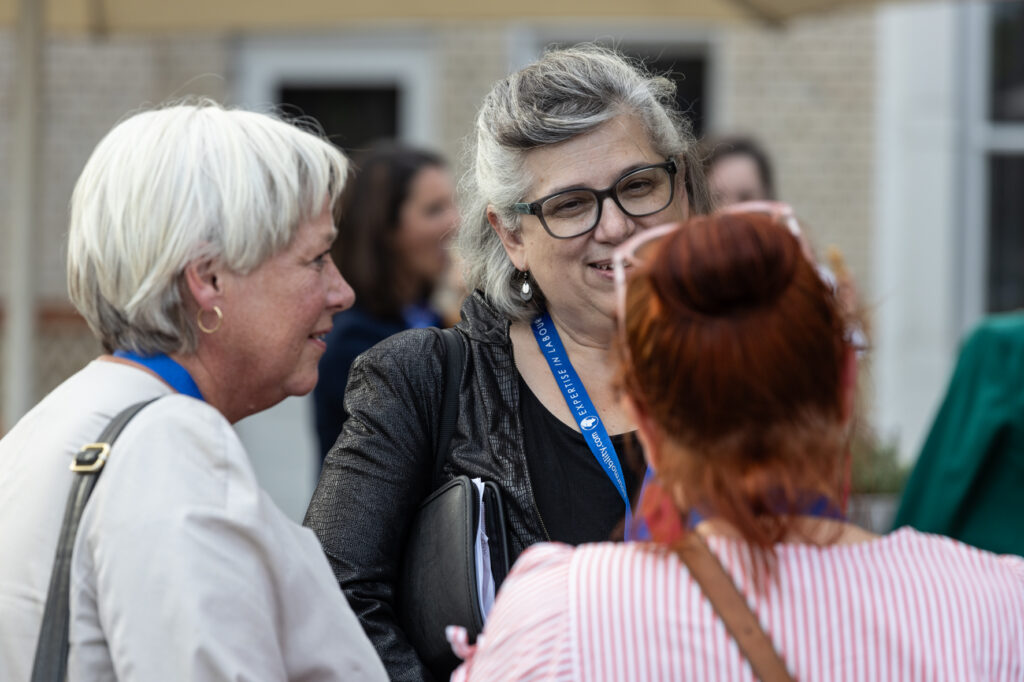
Internationalisation in higher education has always been an topic of conversation. During the ELM 30 event we had the opportunity to hear Dr Joep Hofhuis, an associate professor at Erasmus University of Rotterdam. He talked about research conducted in international classrooms to investigate who benefits from internationalisation. “We measured students’ intercultural competence at the beginning of the year, halfway through, and again at the end of the year, to see how they developed these competencies.”. He found that, “People who benefit the most from this environment are the Dutch students with no previous international experience. They are finding themselves in this intercultural environment and they are the ones learning the most.”.
When asked to share recommendations for educators and university administrators who aim to create a more inclusive and intercultural learning environment within international programs, he said:
“People used to think that if you just put people with different cultural backgrounds in one classroom, magic would happen by itself. We know now that’s not the case. Just putting people in the same program and saying ‘we are diverse and we are done’ is not enough. You have to actively think about how the program is organised, how you get people to interact with each other, how to make it inclusive, and how to make sure that the lecturers and support staff are interculturally competent, so that they can deal with these things. So there’s a lot of stuff that comes into play. My main advice for universities that are doing this kind of thing is to look beyond just the numbers. It doesn’t matter what the percentage of internationals is or where are they coming from. It is much more about the people behind it, how you organise interactions, and how you do community building.”
Dr Joep Hofhuis, Associate Professor at Erasmus University of Rotterdam
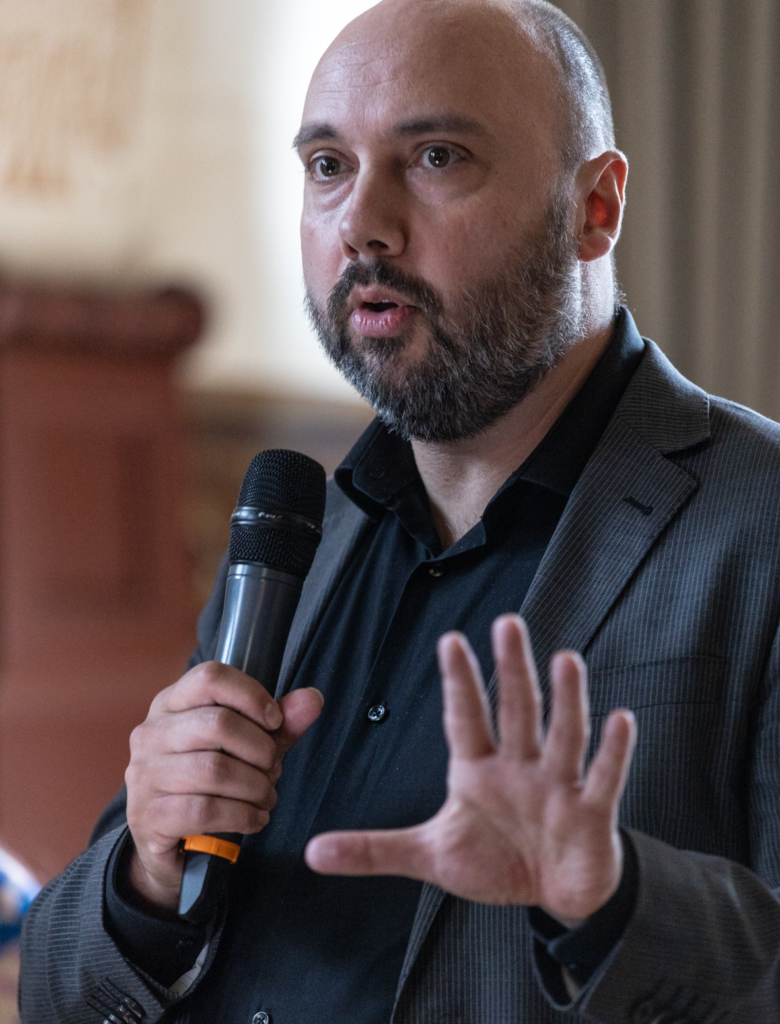
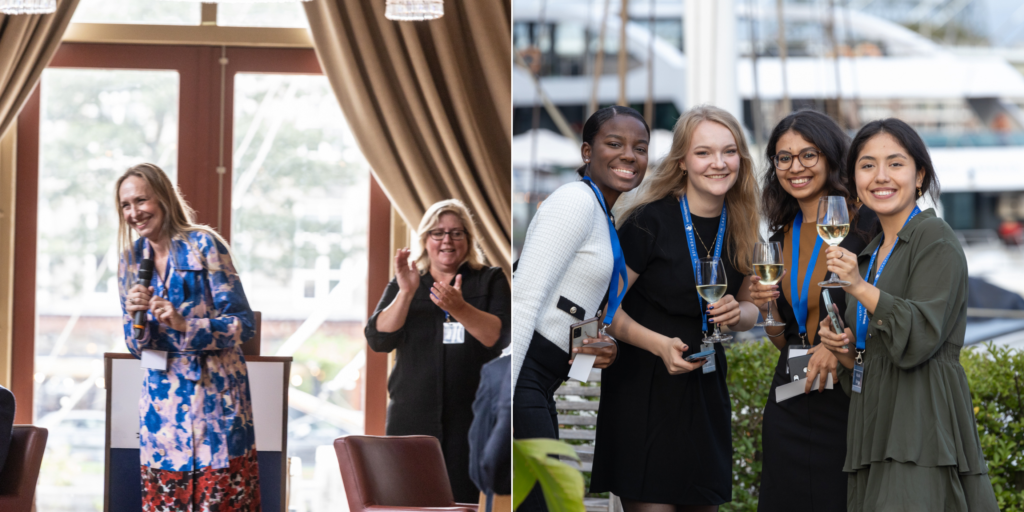
It was a huge pleasure to welcome so many people to Rotterdam, to ELM’s birthday party (!), and connect friends and colleagues around the theme of mobility. Looking forward to the next 30 years working with you and enjoy what we do: making mobility work!
Nannette Ripmeester, Director Expertise in Labour Mobility
Find out how the #ELM30 event went, and how it all started:
@ELM Team

